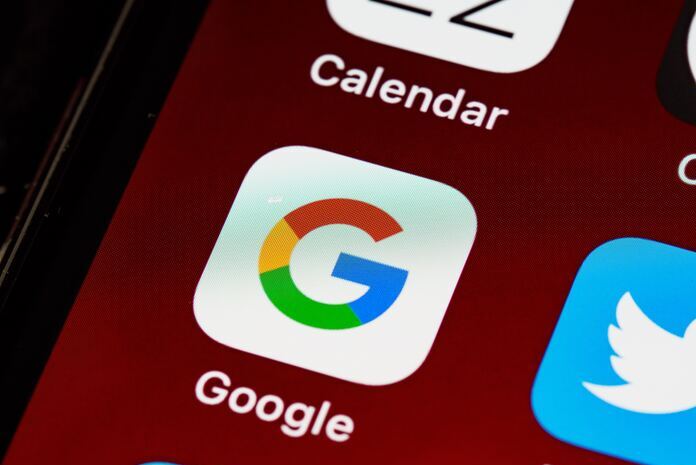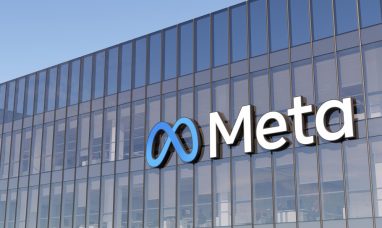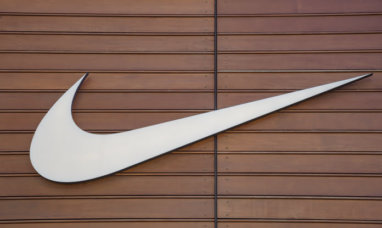Google Stock (NASDAQ:GOOGL)
Recent technological breakthroughs have emphasized the increasing competition between major search engines and artificial intelligence (AI) players. Alphabet Inc. (NASDAQ:GOOGL) (NASDAQ:GOOG), a long-standing dominant power in the search engine industry, is facing substantial competition from Bing and other AI technologies.
Third-party estimates, however, show that Google’s market share has stayed stable since Microsoft Corporation’s (NASDAQ:MSFT) upgraded Bing launch. Similarly, Google stock price has outperformed the Nasdaq Composite Index, and its current momentum is projected to continue in the near future.
Samsung Isn’t Going Away Anytime Soon
Earlier this month, the New York Times claimed that Samsung was considering switching from Google to Bing Search on its devices. This announcement startled investors, and the New York Times stated that Google officials are in a “panic.” This appears likely given Search’s 20-year monopoly until last November, the stickiness of Android partnerships over that period (often as a result of Google paying for default distribution), and the shifting tides in Search since the launch of ChatGPT.
Samsung presently controls a sizable percentage of the smartphone market, accounting for 27% of the market (excluding China) and 60% of the Android market share, notably in the high-end category. Samsung controls approximately 25%-26% of the smartphone market (with a significant proportion in South Korea). This market share statistic is a good proxy for Samsung’s digital ad coverage in the US, UK, and Western Europe, which are Google’s primary ad markets.
However, the Wall Street Journal reported last month that Samsung Electronics had no plans to replace Google as the default search engine on its cell phones with Microsoft Bing anytime soon. It is uncertain whether Samsung was considering switching to Microsoft, as it might potentially be a move to reclaim leverage from Google; the relationship between Samsung and Google has been volatile for several years.
In 2020, Reuters reported that Google was providing Samsung with better economics in order to curb Samsung’s ambitions to build out its app store and assistant. More recently, in 2021, the State Attorneys General filed a case alleging that Google used anti-competitive terms in attaching its app store to distribution deals with Android OEMs (similar to what happened in the EU in 2018).
Laser-Focus On AI
According to a New York Times story, Google is facing significant competition from Bing and other AI technology. As a result, Google is hard at work designing a brand-new search engine that makes use of AI technology. Google is also improving its current search engine by incorporating AI elements. The future search engine would strive to anticipate users’ wants and give them a highly tailored experience. I’m still on the Google side, as the NYT article cited a slew of potential new AI products from Google, which should help sway the narrative back a bit.
Alphabet underscored its strategic focus on integrating AI across its many businesses on a recent conference call. Microsoft’s cooperation with OpenAI has begun to challenge Google’s leading search monopoly by introducing generative AI techniques into Bing. In response, Alphabet developed Bard in March as a competitor to OpenAI’s ChatGPT and promised to further integrate generative AI capabilities into Search.
However, Google is proceeding with caution due to the potential impact on Search and the risk of bad user experiences. Significant changes in competitive positioning may take time, but the short-term expenses of AI, such as infrastructure upgrades, are projected to climb.
The conference call also emphasized the importance of artificial intelligence throughout Alphabet’s business units, including Search, YouTube, and Cloud. Google mentioned the creation of new AI products and advancements, such as ChatGPT-like search bots, AI-powered cybersecurity capabilities, and tools to automate manual activities for creative purposes. Performance Max, an artificial intelligence-enhanced tool that benefits advertisers, was noted as an example of how AI may increase efficiency and create higher conversion rates.
This is only the beginning of the possible performance advantages that AI can provide in advertising. In addition, Alphabet announced the merger of its two AI research units, DeepMind and the Brain Team, transferring associated costs from Google Services to company spending
Taking Advantage of GAI
Google demonstrated substantial progress in harnessing Generative AI (GAI) to transform Search and other products at the I/O keynote address. This demonstrates Google’s intention to reclaim control of the GAI narrative, which Microsoft has recently dominated.
While not all of Google’s product enhancements are revolutionary or immediately available, they illustrate the company’s faster pace of innovation in launching GAI-driven products for users and companies. Google’s activities are likely to have broad adoption beyond core Search, expanding to platforms such as Gmail, Maps, Photos, and more, with 15 products claiming over 500 million users and 6 reaching 2 billion users.
Google officially launched PaLM 2, its latest Large Language Model (LLM), which is available in several variants (for example, Gecko for mobile) and drives over 25 products and functionalities. Google’s early GAI search platform, Bard, has been fully migrated to PaLM 2 and is now available in 180 countries. Notably, Google demonstrated instances of the new search results page, which includes an AI-powered snapshot that combines essential parts of the present search experience, such as Shopping graph results, advertising, and connections to merchant websites.
Increasing Bard’s Availability Globally, I believe Google’s original Bard rollout in February was hasty and inadequate in addressing concerns about ChatGPT and Generative AI. However, management’s latest pronouncements surrounding Bard revealed a more thoughtful and sophisticated strategy. With Google’s latest technology, product selection, and partner network, the business successfully demonstrated Bard’s potential.
Google has now fully moved Bard to PaLM 2, its advanced LLM, and made it available in over 180 countries in English, with plans to add 40 additional languages. Google also revealed new export options and partnerships, like the integration of Bard with Adobe Firefly. Most notably, they linked current Google products like Lens, Docs, Drive, Gmail, Maps, and others with Bard, emphasizing their synergies.
Google I/O 2023 Is an Event Hosted by Alphabet
One of the first and most crucial takeaways for investors from I/O is Google’s massive scale advantage over many other consumer internet companies. The business has revealed numerous data points during I/O throughout the years, but this year was a clear flex.
According to the business, the five “mega-apps” Search, Gmail, Play, Chrome, and YouTube, as well as the total Android OS (#6), have more than 2 billion users today. At Google I/O, Alphabet demonstrated numerous capabilities from its core search, Gmail, and Workspace suites that may bolster efforts to limit interruption from GAI in Search.
A foldable phone might help the company’s Android ecosystem for launching LLM on-edge devices. The cloud is well-positioned to benefit from the demand for AI-based workload copilots and assistants. This year’s Google I/O event was heavily focused on vertical integration. Alphabet emphasized the integration of generative AI elements into the company’s basic search page, Gmail, pictures, and Workspace apps.
This might promote user engagement throughout its app family, even as consumers discover that metadata and contextual awareness improve their productivity. The management emphasized six apps with over 2 billion users that provide scale in terms of user data and distribution for generative AI use.
To See More Change, Conduct A Search
Many modifications to Google’s basic search page’s user experience are likely as it combines generative AI and huge LLMs to offset ChatGPT. The addition of a follow-up button attempts to increase the conversational nature of Search. Though search volume may be impacted in the short term, the follow-up button may increase interaction and allow the company to display sponsored adverts and clickable links. Because personalization will likely improve over time, using contextual models to drive search experience may lead to people spending more time on its page
Bottom Line
Finally, Google is conscious of the changing search engine ecosystem and the growing significance of AI technology. The corporation responds to the competition proactively by constructing a new search engine and incorporating AI into its many goods and services.
Google’s emphasis on vertical integration and the deployment of GAI technologies reflects the company’s dedication to increasing user engagement and efficiency. While significant changes in the competitive landscape may take time, Google’s attempts to utilize AI technology position it to reclaim narrative control and maintain its position as an industry leader. Finally, the I/O event developments underscore Google’s faster pace of innovation and commitment to providing highly tailored and efficient experiences to its enormous user base. I’m bullish on Google stock.
Featured Image: Unsplash @ Brett Jordan

















